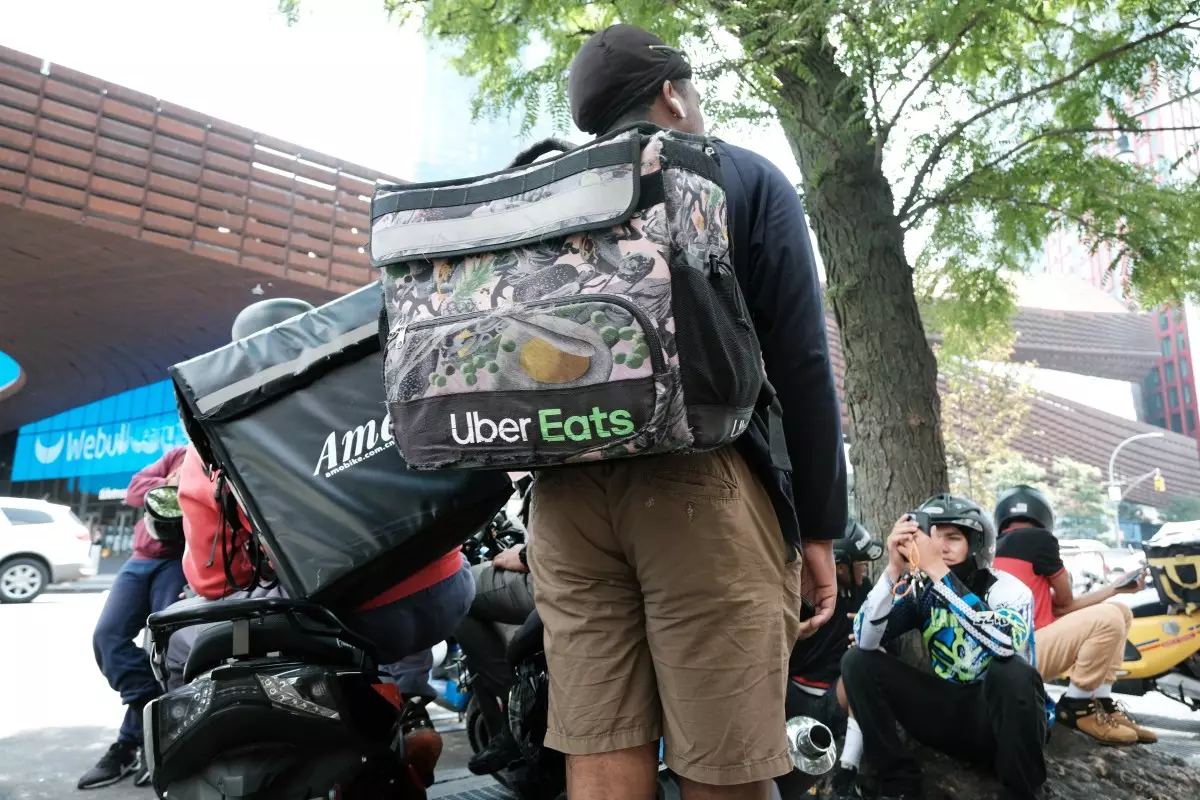The food delivery sector has emerged as a fiercely competitive battleground, where market dominance often comes at the cost of fair play and equitable practices. Recently, a notable development has transpired as Uber, a major player in this landscape, has filed a lawsuit against DoorDash, its primary competitor. The allegations are serious: that DoorDash has employed intimidation tactics to coerce restaurant owners into exclusive agreements, thereby undermining competition and limiting the options available for these businesses. This article will delve into the implications of this legal conflict while analyzing its broader effects on the food delivery ecosystem.
Uber’s allegations are rooted in claims that DoorDash has leveraged its dominant market position to threaten restaurants. According to Uber, DoorDash engages in practices that compel restaurants to enter exclusive or nearly exclusive agreements. Such agreements often entail that no delivery services but DoorDash’s can be utilized for orders placed through a restaurant’s own website. This restrictive approach reportedly comes with the threat of significant penalties—potentially worth millions—if restaurants defy these exclusivity demands. Uber insists that these practices not only inhibit competition but also threaten the very viability of independent eateries trying to navigate the complexities of delivery service partnerships.
In response, DoorDash has dismissed Uber’s claims as baseless, arguing that the lawsuit stems from Uber’s inability to compete effectively within the market. This juxtaposition highlights a dynamic often seen in competitive industries: as one company seeks to exploit perceived unethical conduct in another, accusations fly between industry giants. Such public spats not only illustrate the intense rivalry but also raise questions about the state of ethical practices within the rapidly evolving gig economy.
For restaurants, the implications of these practices are significant. Many establishments rely heavily on food delivery services to reach a broader customer base, especially in the wake of the COVID-19 pandemic, which shifted dining preferences dramatically. Uber asserts that it partners with over a million merchants, providing them with choices that enhance their ability to engage with diverse customer segments. However, if DoorDash’s tactics lead to limited delivery options, restaurants could find their potential revenue streams curtailed.
Compounding the struggle, some restaurateurs have reported feeling trapped, akin to having a “gun to their head,” unable to seek more favorable alternatives without the fear of punitive repercussions from DoorDash. Given that many businesses are still recovering from pandemic-related setbacks, any constraints on their sales channels could have devastating consequences for their operations. The lawsuit positions Uber as an advocate for restaurant autonomy, positing that they should be given the freedom to collaborate with whichever service providers best meet their needs.
In addition to scrutinizing DoorDash’s practices, it is essential also to understand the rise of white-label delivery services that both Uber and DoorDash offer, namely Uber Direct and DoorDash Drive. Introduced in 2020, these services allow restaurants to manage orders through their platforms while outsourcing the logistics of delivery to the services’ couriers. This model is typically more affordable, as it cuts down on fees imposed by third-party services when restaurants can attract customers directly.
However, the competitive strain intensifies when one service begins employing aggressive tactics to dominate market share in this area. Uber’s lawsuit suggests that DoorDash’s coercive methods are jeopardizing not only the economic viability of alternative services but also the fundamental prospects for smaller businesses aiming to optimize their delivery capability without draconian penalties.
Beyond the specific allegations, the broader implications of this lawsuit suggest a rapidly evolving business environment in food delivery. With each company vying for control over a profitable marketplace, ethical considerations may frequently be sidelined amid cutthroat competition. The outcome of the legal battle may set a significant precedent for how gig economy players interact with partners and customers in the future.
The delivery sector is currently at a crucial juncture. With growing scrutiny from regulators and an increasingly informed consumer base, the practices adopted by companies like DoorDash and Uber will come under greater examination. As Uber seeks a jury trial for damages caused by alleged anticompetitive behaviors, the industry waits to see how the legal system will interpret these conflicts and whether it will herald changes in how delivery services conduct business in the future. This lawsuit could potentially redefine the competitive rules within the industry, echoing far beyond the courtroom walls.

